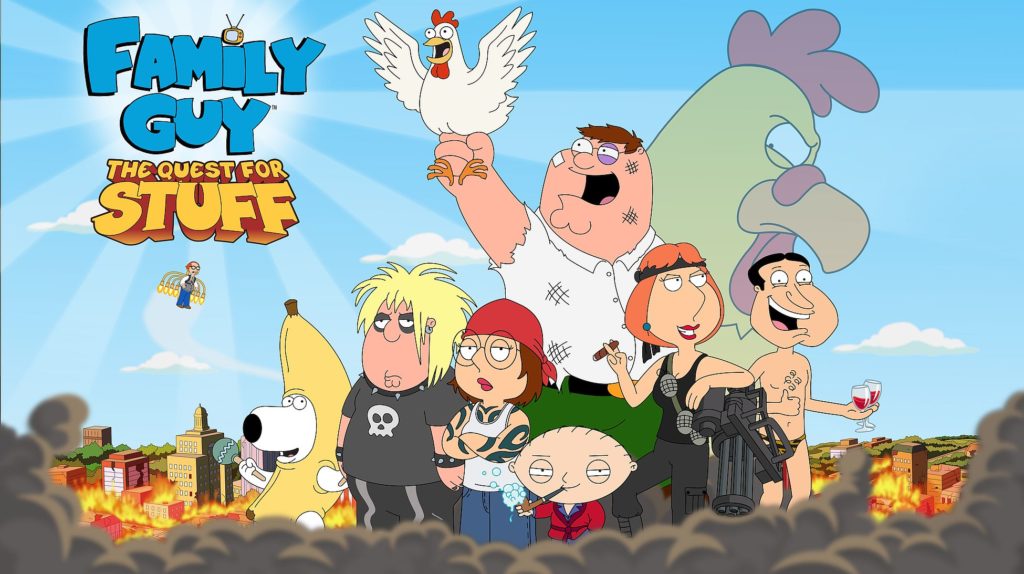In the latest move to hit the mobile games industry, SGN has acquired TinyCo, the Andreessen Horowitz-backed San Francisco studio behind the Marvel Avengers Academy and Family Guy: The Quest for Stuff games. The acquisition price was not disclosed, but this is the third company SGN has picked up since receiving a $130 million investment from South Korea’s Netmarble games last summer. It’s a big step forward for SGN, adding another 125 employees to the company (which brings it to 400 in total), as SGN looks to increase its role as one of the major players in mobile gaming. Suli Ali, TinyCo’s CEO and co-founder, will continue running the studio, which expects to generate more than $100 million in revenue this year.
“Suli and TinyCo realized early on the enormous potential of mobile in this industry, and they foresaw the massive opportunities for gaming in entertainment,” said SGN’s CEO and co-founder Chris DeWolfe. “Buying TinyCo helps us diversify the types of games we offer and advance our ambition to create a mobile gaming giant.”
DeWolfe founded SGN in 2010 with president and COO Josh Yguado and CTO Aber Whitcomb. Over the past four years, the company’s monthly active users have risen 800 percent to nearly 50 million people, and revenues have grown by more than 1,000 percent since 2013, making SGN one of the top mobile game developers in the world.
“We are thrilled to join the SGN family, as TinyCo’s games complement SGN’s portfolio of games perfectly,” said Suli Ali. “Being a part of SGN will enable us to continue building hugely successful games with Hollywood franchises but with SGN’s resources and firepower behind us.”
SGN’s co-founder, president and chief operating officer Josh Yguado spoke with [a]listdaily about the acquisition, what it means for SGN, and what it says about the future of mobile gaming.
SGN has had a busy year, hasn’t it?
We did the fund raise in August, and then in December we acquired two smaller studios, and this is our biggest move since the raise with the acquisition of TinyCo.

What was it about TinyCo that attracted you to it?
We’ve been intrigued by the intersection of gaming and entertainment for a long time. TinyCo is clearly the leader in creating entertainment mobile games—Family Guy: The Quest for Stuff has been a huge hit. Marvel Avengers Academy is doing very well, and there are many more IPs they actually have already tied up in the pipeline. We think becoming a leader in the entertainment builder space and the storytelling space is very interesting and complements our portfolio well. It helps us build scale quickly as we continue to grow.
Is increasing the size of a mobile game company one of the best ways to solve the discovery problem mobile games have?
It’s certainly an advantage, having scale. It’s not a coincidence that TinyCo also creates casual games that cross-promote well. Clearly, the industry is consolidating pretty quickly, the number of publishers that control the top-grossing games are actually decreasing over time while the overall mobile gaming pie is increasing. We think consolidation is only going to accelerate, and it’s important for us to play a leadership role as the industry changes quickly. Absolutely—having scale, being able to cross-promote, and being able to market at scale are all really important factors and we’re trying to take advantage of that trend.
Do you see marketing synergies between TinyCo and SGN?
Very much so. We’ve done IP-driven games before, and we actually have two big IP-driven games in the pipeline that we believe will cross-promote very well with TinyCo’s existing titles.
The implication is that TinyCo will run as an independent unit, is that correct?
Exactly. It’s really how we run most of our studios at SGN. They’ll be responsible for the games they develop. They will continue to work on the TinyCo specific titles, and they’ll have relative independence from a creative standpoint.
I’ve been on both the acquiring and the acquired side many times through my career, and I think when you force integration and force synergies is when you do the most damage. We’re going to really focus on giving them the leeway to continue doing what they do best.
It seems like the mobile game industry is going through a consolidation phase, with Tencent buying Supercell and other acquisitions. Will we still see as much creativity and innovation with consolidation?
It’s a good question. I personally don’t think the consolidation we’re seeing right now will negatively affect the level of creativity and the types of games we see in the market. If you don’t have scale, you’re forced to make games that have very low acquisition costs and very high virality, which are not always the most fun games, but they’re the games that—if you don’t have a network—will help you get up in the charts and achieve scale quickly. When you have more resources, better art talent, better game designers, and the luxury of a big user base, it gives you the opportunity to do some interesting things.
Do you think there is potential to grow a mobile game audience and make more money from an existing one?
I don’t know for sure, but if you look at the trends over the last two or three years, you’ve seen that as the products get better and better—and the level of immersion continues to improve—people are willing to spend more on a given game. I think ultimately, people are paying for entertainment, and if you can raise the bar in terms of entertainment quality delivered, there’s definitely an opportunity to continue to increase monetization within the games.
Are there more acquisitions ahead for SGN? If so, what qualities do you look for in a company?
Yes, we’re still open to doing more acquisitions. We raised more capital a year ago, and we intend to continue to opportunistically pick up some additional leaders in the space. In terms of characteristics we look for, it’s really all about product. We’re looking for companies that complement our own, and a portfolio that’s different than what we’re doing right now, so it brings new capabilities into the fold. To any company, we can add the firepower of scale and marketing expertise as well as having a big installed base of users. Finding really great products that fit into our portfolio is what drives our acquisition strategy.

